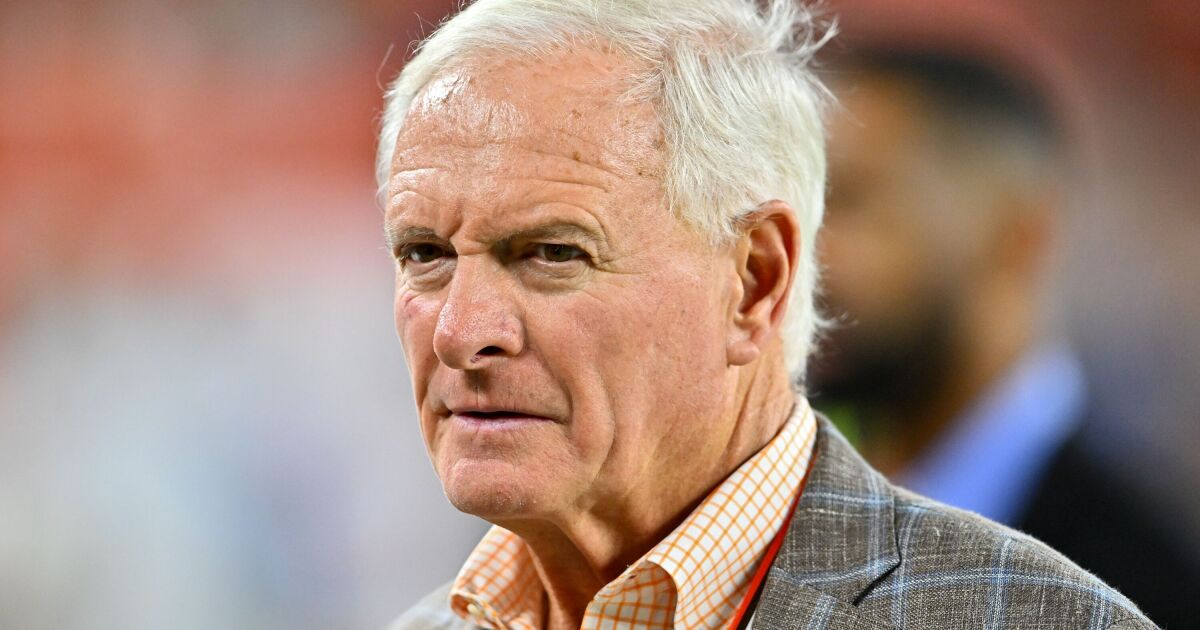Warren Buffett’s Berkshire Hathaway Inc. said the billionaire former owner of Pilot Travel Centers sought to influence Pilot executives’ business decisions in order to juice the company’s quarterly earnings and pump up the value of his remaining stake in the truck stop chain.
In a court filing Tuesday, Berkshire alleged that Jimmy Haslam, whose family owned Pilot until selling it a controlling stake, launched an “illicit scheme” involving secret pledges of bonuses to 15 senior executives and other managers. He promised millions of dollars in “side payments” to the executives to boost short-term profit at the expense of its long-term value, according to the filing in Delaware Chancery Court. The alleged aim was to raise the value of his 20% stake in the chain.
Berkshire claims that after it took control of Pilot in January, Haslam “secretly promised massive side payments, from his own pocket,” to get the executives to focus on 2023 profit, which determines the payout Pilot would get on selling its minority stake to Berkshire early next year. He proceeded “in an insidious and largely undetectable way,” Berkshire alleges.

Jason Miller/Getty Images
Lawyers for Haslam, the owner of the National Football League’s Cleveland Browns, didn’t immediately respond to a request for comment on the filing. A Pilot spokesperson declined to comment on behalf of Haslam. Haslam is a member of Pilot’s board of managers, according to the filing.
Battle of the billionaires
The filing is the latest twist in an intensifying legal back-and-forth between the billionaires. Haslam has sued Buffett’s Berkshire over an accounting change he says will cut the value of his holdings by $1.2 billion.
Berkshire acquired about 39% of Pilot Flying J, a truck stop provider closely held by Haslam, for $2.75 billion in 2017. It paid $8.2 billion for another 41% stake in January, giving Berkshire 80% of the business, court filings show.
The deal gave the Haslam family the right to sell the remaining 20% to Berkshire on Jan. 1, 2024, using the valuation methods applied to the other purchases. But in its suit the family alleges that Buffett’s lieutenants recently moved the goalposts, changing the firm’s accounting rules to reduce the value of Haslam’s stake.
Delaware Chancery Judge Morgan Zurn is set to hear Haslam’s claims about Berkshire’s valuation methods in January. Berkshire wants Zurn to hear their allegations about Haslam’s promised payments to Pilot executives at the same time.
Berkshire is asking Zurn to bar Pilot from invoking its right to sell the remaining stake within the 2024 window for that sale and to rule out the use of its “corruptly influenced 2023 earnings” in valuing the stake.
Country club dinner
According to Berkshire’s filing, Haslam targeted employees in Pilot’s fuel management division because “they have an extraordinary amount of everyday discretion to make trading decisions with significant cumulative effects” on profit.
Berkshire said it learned about Haslam’s alleged payment scheme when a Pilot executive told the current chief executive officer, who reports to Berkshire, that Haslam had offered to pay him a bonus “linked to the amount Pilot would receive” from the sale of the stake. Haslam allegedly made that vow to 15 senior Pilot executives at a March 2023 dinner at Knoxville, Tennessee’s Cherokee Country Club.
“Haslam’s promised payments were illicit because they were not called for or contemplated in any way by PTC’s employment agreements or compensation plans,” according to the filing, referring to Pilot Travel Centers.
The alleged promised payments were hidden from Pilot’s CEO and chief financial officer, who joined the company after Berkshire took control, and from the Berkshire designees on Pilot’s board, according to the filing.
Tough to parse
Because the ad hoc bonus program may have tainted the actions of some Pilot executives, Berkshire says, it now doesn’t know whom to trust or whether the 2023 earnings can be used to value Haslam’s remaining stake.
“Parsing loyal from corrupted day-to-day decision-making” by various Pilot employees “over the course of nearly a year would be impossible as a practical matter,” it argues.
Knoxville-based Pilot had been run by Haslam, the brother of former Tennessee Governor Bill Haslam, since 1996. Haslam has owned the NFL’s Browns since 2012, when he paid more than $1 billion to buy control of the team from Randy Lerner, son of billionaire credit card magnate Alfred Lerner.
The case is Pilot Corp. v. Abel, 2023-1068, Delaware Chancery Court (Wilmington).




